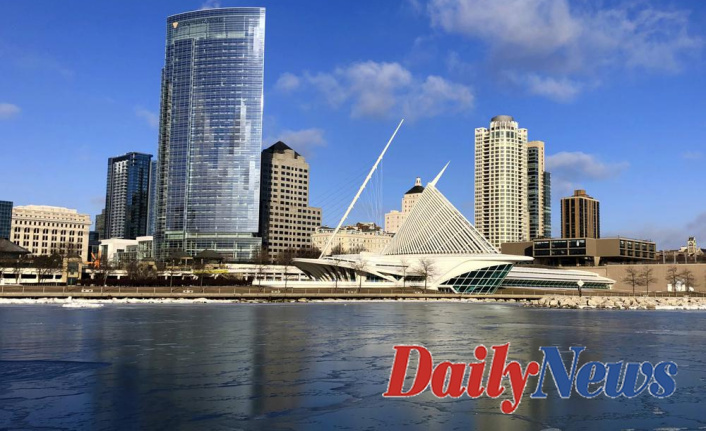Rival Nashville is managed by a mayor whose Democratic brother had been strippedout his congressional seat in Tennessee by Republicans.
It is safe to say that these two Democratic strongholds are not happy about the GOP convention landing. Hosting the once-every four-year assembly provides an immediate spending boost and valuable national exposure. It also involves welcoming bitter political foes.
David Crowley (a Milwaukee County Executive) said that some people do not want this to happen. He is a Democrat. "Some people are hesitant about bringing it to Wisconsin. This is how we will jumpstart our economic activity here in southeastern Wisconsin if politics are not involved.
Last week, the cities presented their final pitches to Washington's Republican National Committee. A decision on whether or not they will be selected is expected shortly. The final decision will depend on whether Republicans value the Nashville branding, which is honky-tonk-infused and marketed to white working-class voters. Or whether they see it as an opportunity to claim Wisconsin, a perennial presidential swing-state that has its fair share.
Wisconsin could decide who wins in 2024. Tennessee has not backed a Democrat since 1996. History would favor Milwaukee in the convention contest. Two decades ago, Republicans placed their nomination convention in swing states: North Carolina, Ohio, and Florida.
In Tennessee, Trump defeated Biden 23 points to 32. Scott Golden, the chairman of the state GOP, said that choosing Nashville would allow Republicans to highlight a GOP state which has grown despite the pandemic and give credit to its business-friendly tax policies. There is no personal income tax.
Music City, according to backers, is an even more appealing destination for visitors. One block from downtown is the arena and convention centre. The Country Music Hall of Fame can be found across the street. At the arena, attendees are ushered onto the famous neon-lit strip bars that offer live music almost every hour. You can always find hot chicken and biscuits nearby.
Downtown is changing with new hotels. Golden suggested that convention-goers could be concentrated in the city center, decreasing the need for long bus rides and farewell lodging at previous conventions. This will increase branding opportunities and reduce congestion.
Golden stated, "This is really an excellent narrative of America." It doesn't hurt, however, that country music is also centered there.
Wisconsin counters by arguing that the 2024 gathering should, like the previous three Republican conventions in the state, be held in a critical swing state. Crowley, a Democratic chief of staff to Trump and ex-head of the RNC, is joining Republican U.S. Senator Ron Johnson and Reince Poncebus as boosters.
Milwaukee also pitches itself as being turnkey-ready due to its efforts to land the 2020 Democratic convention. However, that ended up mostly online because of the coronavirus pandemic.
Despite the bipartisan push, Wisconsin's polarized politics remain evident.
Trump unsuccessfully tried to disqualify thousands in Milwaukee voters in 2020. He falsely portrayed late-arriving returns, driven by high absentee turnout, as fraud.
Claire Woodall-Vogg was the city's top election official. She tweeted mid-March saying that she would work remotely if Milwaukee wins the convention. Three days later, she deleted her twitter account.
According to the Milwaukee Journal Sentinel, Woodall-Vogg said that her tweet was an "ill attempt at dark humor given that death threats are fueled by 2020 presidential election." She also stated that she would be open to the convention's positive economic effects.
According to Tim Carpenter, a Democratic state senator from Milwaukee, "It's very polarizing." "It will be a very polarizing convention if Donald Trump is present."
Peggy Williams Smith, the head of the city’s tourism bureau, has been instrumental in the city's bid. She said that the convention should focus on the economic impact on the state, region, and city.
Williams-Smith stated, "This to me it is not red or green, it's just green."
Nashville Convention & Visitors Corp. also echoed the sentiment, stating that its job is "without bias" and pointing out that it has bid for both the Democratic convention at GOP Gov. At Bill Lee's request.
Mayor John Cooper is a Democrat. He watched as Republicans split the city in redistricting. This was a move that was intended to increase their chances of flipping a Democratic congressional seat. It also drove Cooper's brother U.S. Rep. Jim Cooper not to run for reelection.
John Cooper stated to The Associated Press that there's a lot of research needed on hotel rooms and security issues. Cooper said that the RNC may be experiencing "a bit of sticker shock" about how expensive Nashville hotels are. He said that the RNC would not expect hospitality to lose money to achieve this.
Cooper stated that there is a "different burden" associated with all the convention facilities in downtown. Cooper stated that Nashville police must "feel really great about this" in order to approve the application.
If Nashville is chosen, Tennessee's governor may use state money.
Some Nashville Democrats feel the event isn't worth it, either politically or practically.
John Ray Clemmons, a state representative, worries that the local government will incur costs and have to close down parts of a city that attracts visitors regardless. He said that politics doesn't make sense.
Clemmons stated, "This is a beautiful and growing city." "And our city stands up for everything they oppose."
David Schultz, a political science professor at Hamline University in St. Paul (Minnesota), isn't sure if the convention will boost Republicans. He examined the effects of convention locations on race outcomes from World War II to present and found no evidence.
Schultz stated that there is a political folk wisdom that placing a convention within a state will either flip it from being Democrat or Republican, or somehow really energize its base in some manner. "Largely, it doesn't work out."












